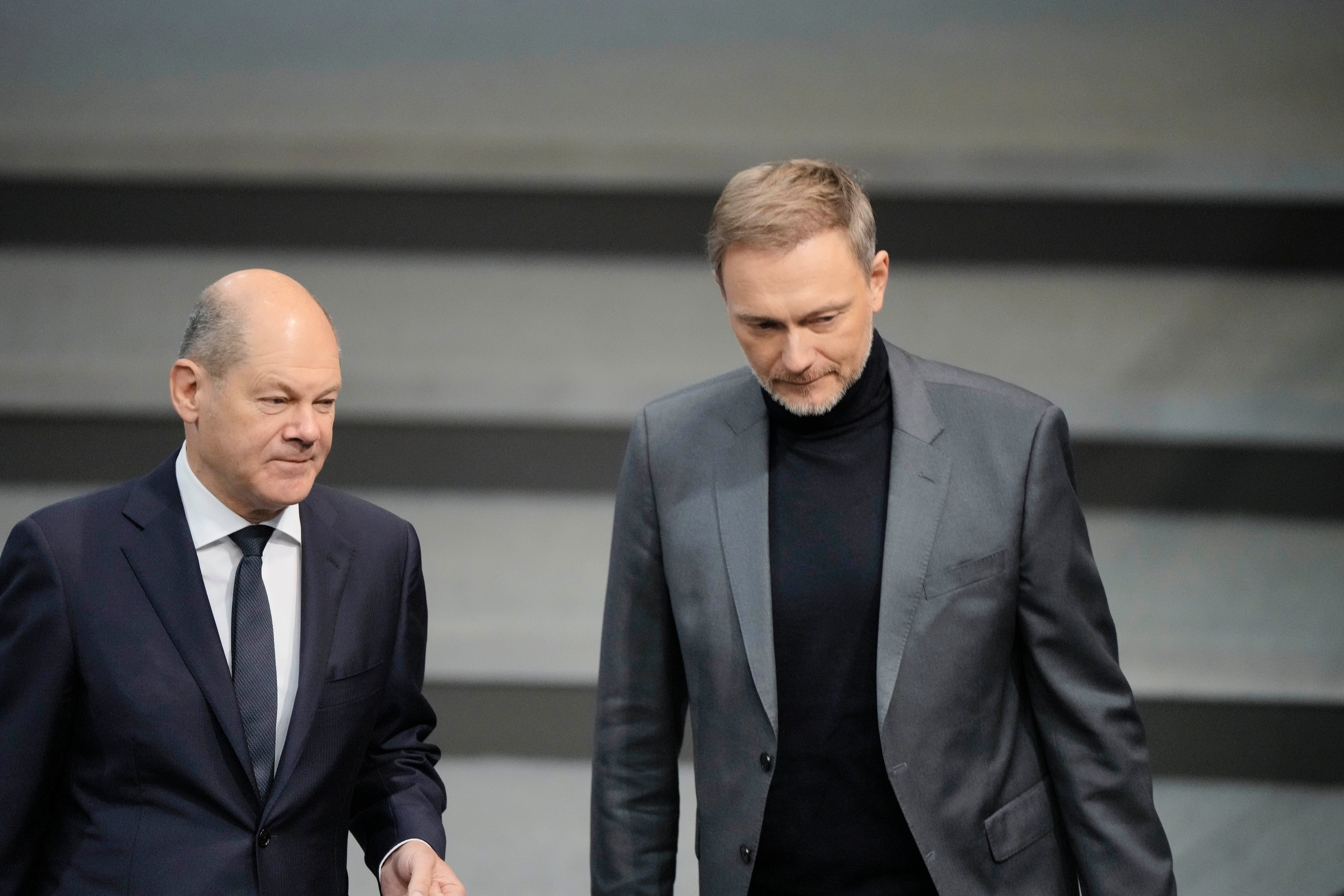Germany's economy shrank, and it's facing a spending crisis that's spreading more gloom
Germany’s economy shrank in recent months, and business confidence is still in the dumps

Your support helps us to tell the story
From reproductive rights to climate change to Big Tech, The Independent is on the ground when the story is developing. Whether it's investigating the financials of Elon Musk's pro-Trump PAC or producing our latest documentary, 'The A Word', which shines a light on the American women fighting for reproductive rights, we know how important it is to parse out the facts from the messaging.
At such a critical moment in US history, we need reporters on the ground. Your donation allows us to keep sending journalists to speak to both sides of the story.
The Independent is trusted by Americans across the entire political spectrum. And unlike many other quality news outlets, we choose not to lock Americans out of our reporting and analysis with paywalls. We believe quality journalism should be available to everyone, paid for by those who can afford it.
Your support makes all the difference.Germany's economy shrank in recent months and business confidence is still in the dumps, according to figures released Friday, while the government is struggling to overcome a budget crisis that threatens to exacerbate problems in what was already the world’s worst-performing major developed economy.
Europe's largest economy shrank 0.1% in the July-to-September quarter as inflation eroded people's willingness to spend, Germany's statistics office confirmed Friday.
Meanwhile, the closely watched Ifo institute survey of business optimism showed a tiny uptick to 87.3 for November from 86.9 in October but remained well below its July level.
The downbeat figures come as the country's budget crisis raises the possibility of deep spending cuts next year. A court ruled last week that previous spending violated constitutional limits on deficits, forcing Chancellor Olaf Scholz's government to put off a final vote on next year's spending plan.
Economists say the budget uncertainty and the possibility of reduced spending worsen the challenges facing the stagnating German economy as it struggles to adapt to long-term challenges such as a shortage of skilled workers and the loss of cheap natural gas from Russia after the invasion of Ukraine.
Germany is the only major economy expected to shrink this year, according to the International Monetary Fund, which foresees a decline of 0.5%.
Officials are searching for ways to fill a 60 billion euro ($65 billion) budget hole over this year and next after the country's Constitutional Court ruled that the government could not repurpose unused funding meant to ease the impact of COVID-19 into projects to fight climate change.
The court said the move violated rules in the constitution that limit new borrowing to 0.35% of annual economic output. The government can go beyond that in an emergency it didn't create, such as the pandemic.
The ruling has tied Scholz's quarrelsome, three-party coalition in knots as the cabinet tries to comply with the decision, raising uncertainty about which government programs will be cut.
Analysts say about 15 billion euros had already been spent in this year's budget, some of it on relief for consumers' high energy bills.
Finance Minister Christian Lindner has proposed invoking an emergency again this year to bring spending in line. But the bigger problem is the 35 billion to 40 billion euros that the government can no longer borrow and spend next year.
That could mean cuts in the climate and transformation fund, which spends on projects that reduce emissions from fossil fuels. Those include renovating buildings to be more energy efficient; subsidies for renewable electricity, electric cars and railway infrastructure; and efforts to introduce emissions-free hydrogen as an energy source.
It also includes support for energy-intensive companies hit by high energy prices and for computer chip production.
Scholz’s office says he will address parliament next week on the budget crisis.
“There doesn’t seem to be a strong growth driver in sight,” said Carsten Brzeski, chief eurozone economist at ING bank.
He termed the uptick in the Ifo survey of business managers as “a bottoming out” rather than a rebound.
“This is why we expect the current state of stagnation and shallow recession to continue," Brzeski said. "In fact, the risk that 2024 will be another year of recession has clearly increased."